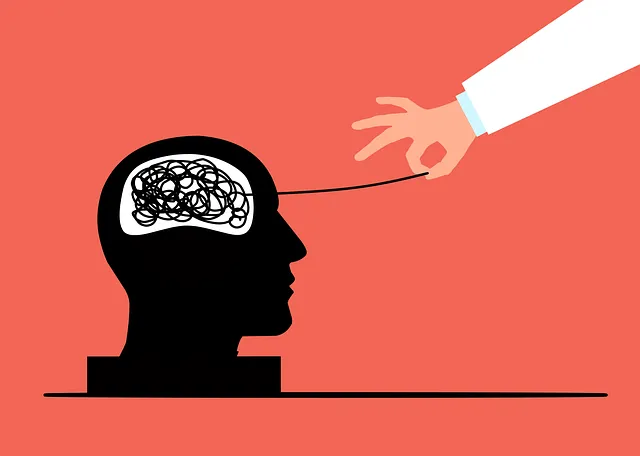Emotional Intelligence (EI), a cornerstone of holistic mental wellness at Castle Rock Kaiser Permanente psychiatry, includes self-awareness, management, social awareness, and relationship skills. By prioritizing EI in patient care, they integrate self-care practices to improve emotional understanding, mental health, and relationships. Active listening, crucial for EI development, enhances communication and connections in healthcare settings, particularly during coaching conversations and stress management. For tailored mental health support and information, contact the Castle Rock Kaiser Permanente psychiatry team via their publicly available phone number.
Emotional intelligence (EQ) is a powerful tool that can transform your personal and professional life. At Castle Rock Kaiser Permanente, our psychiatrists emphasize the importance of EQ in achieving well-being. This article delves into the core concepts of emotional intelligence, explores its significance in daily interactions, provides strategies for identifying and managing emotions, enhancing empathy, and practicing active listening. Discover how these techniques can help you navigate life’s challenges more effectively, just like a seasoned leader navigates their kingdom.
- Understanding Emotional Intelligence: The Core Concepts
- Why Emotional Intelligence Matters in Everyday Life
- Identifying and Managing Your Emotions
- Enhancing Empathy: Recognizing and Understanding Others' Feelings
- Practicing Active Listening for Better Communication and EQ
Understanding Emotional Intelligence: The Core Concepts

Emotional intelligence (EI) is a multifaceted concept that involves recognizing, understanding, and managing one’s own emotions, as well as empathizing with and influencing others’ emotions. At its core, EI comprises self-awareness, self-management, social awareness, and relationship management skills. These competencies are crucial for fostering strong interpersonal connections, enhancing communication, and promoting positive mental wellness.
At Castle Rock Kaiser Permanente psychiatry, we emphasize the importance of emotional intelligence in our patient care approach. By integrating self-care practices into daily routines, individuals can cultivate a deeper understanding of their emotions and develop effective strategies to navigate life’s challenges. A well-established self-care routine not only improves mental health but also enables better relationship dynamics, making it a vital aspect of the journey towards holistic mental wellness.
Why Emotional Intelligence Matters in Everyday Life

In today’s fast-paced world, emotional intelligence (EI) stands as a beacon of resilience and effective communication. It’s more than just understanding emotions; it’s about managing them in healthy ways, both for oneself and others. This concept, often discussed at Castle Rock Kaiser Permanente psychiatry phone number, is integral to navigating everyday life successfully. Whether it’s at work, home, or within our communities, EI helps us interpret and respond appropriately to the feelings of ourselves and those around us.
Building emotional intelligence isn’t just a personal pursuit; it has significant implications on mental health policy analysis and advocacy. By fostering EI, we can better equip individuals with crisis intervention guidance, enabling them to handle stressful situations more effectively. This proactive approach not only enhances overall well-being but also contributes to the development of robust communities where empathy, understanding, and support are the norms, rather than exceptions.
Identifying and Managing Your Emotions

Identifying and managing your emotions is a crucial step in enhancing your emotional intelligence. It involves recognizing and understanding what you’re feeling at any given moment, without judgment. This self-awareness allows for better decision-making and fosters healthier relationships. At Castle Rock Kaiser Permanente, their psychiatry services (phone number available upon request) emphasize the importance of this process in improving mental health. By learning to identify triggers and patterns in your emotional responses, you can develop effective stress reduction methods tailored to your unique needs.
This practice also incorporates mood management techniques, which are essential for maintaining a balanced state of mind. Integrating these into your daily routine, especially through Self-Care Routine Development for Better Mental Health, enables you to navigate challenging situations with greater resilience. It’s about recognizing that emotions are not obstacles but valuable indicators guiding you towards personal growth and well-being.
Enhancing Empathy: Recognizing and Understanding Others' Feelings

Enhancing empathy involves recognizing and understanding others’ feelings, a crucial aspect of emotional intelligence. It’s akin to casting a wide net to capture the intricate emotions that weave through human interactions. At Castle Rock Kaiser Permanente, psychiatry services are designed to help individuals navigate this complex landscape. Through mental health education programs, professionals learn not just to identify emotional cues but also to respond with genuine care and compassion. This not only fosters stronger patient-provider relationships but also improves overall mental health awareness and risk management planning for practitioners.
By cultivating empathy, mental health professionals can better serve their patients. They become more attuned to the subtle nuances of human emotion, enabling them to provide tailored support. This ability is not just a professional skill; it’s a powerful tool that enhances patient satisfaction and outcomes, reflecting the core values of organizations like Castle Rock Kaiser Permanente.
Practicing Active Listening for Better Communication and EQ

Active listening is a cornerstone of emotional intelligence (EQ) development. By focusing intently on what others are saying—both verbally and nonverbally—individuals can enhance their understanding and build stronger connections. This simple yet powerful practice fosters open communication, allowing for deeper insights into emotions, needs, and perspectives. For those seeking to improve their EQ, especially in professional settings like Castle Rock Kaiser Permanente psychiatry, active listening is a skill that can be cultivated through mindful effort.
In the context of Mental Health Policy Analysis and Advocacy, promoting active listening can contribute to more effective patient-provider interactions. Similarly, Mental Wellness Coaching Programs Development often incorporates techniques to enhance listening skills as they are integral to coaching conversations. Moreover, in high-pressure environments, where Burnout Prevention is a concern, active listening helps reduce misunderstandings, builds empathy, and fosters a supportive atmosphere, ultimately contributing to better mental health outcomes.
Emotional intelligence is a powerful tool that enriches our personal and professional lives. By understanding and managing our emotions, we can improve relationships and navigate challenges with greater ease. Incorporating practices like identifying emotions, enhancing empathy, and active listening into daily routines, inspired by resources available from Castle Rock Kaiser Permanente psychiatry services, empowers us to lead more fulfilling lives. Remember, cultivating emotional intelligence is a journey; each step towards better self-awareness and connection brings us closer to our true potential.






